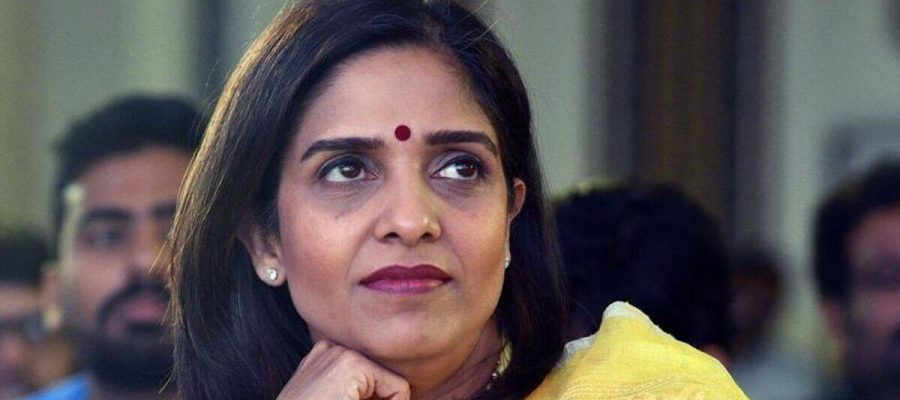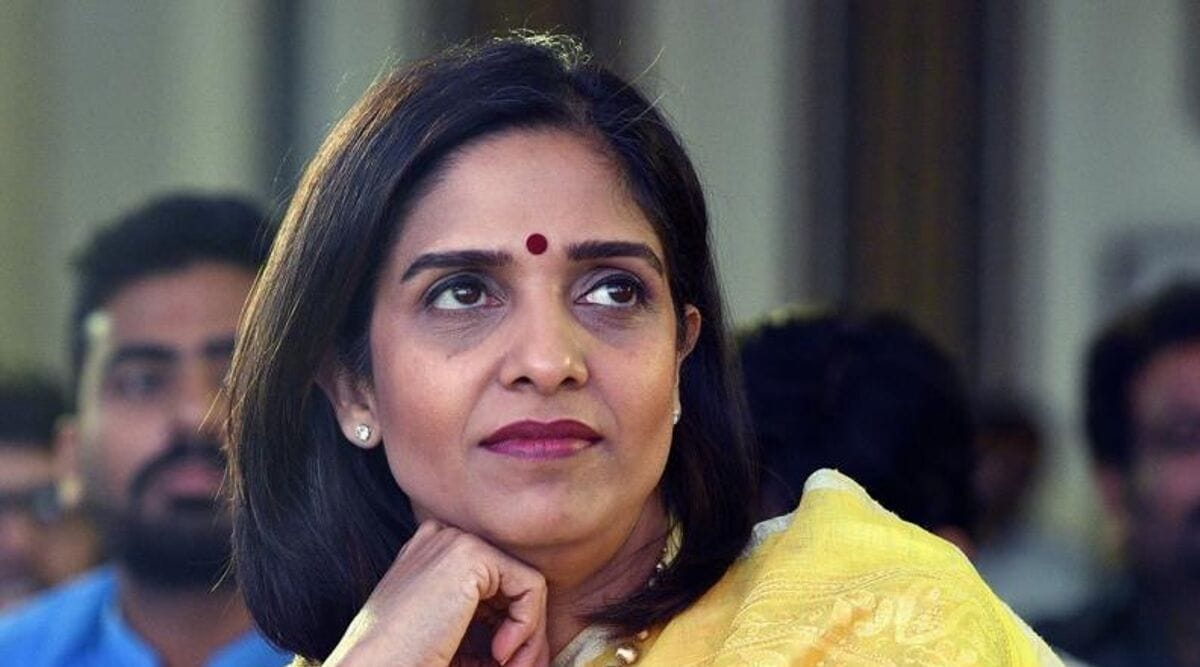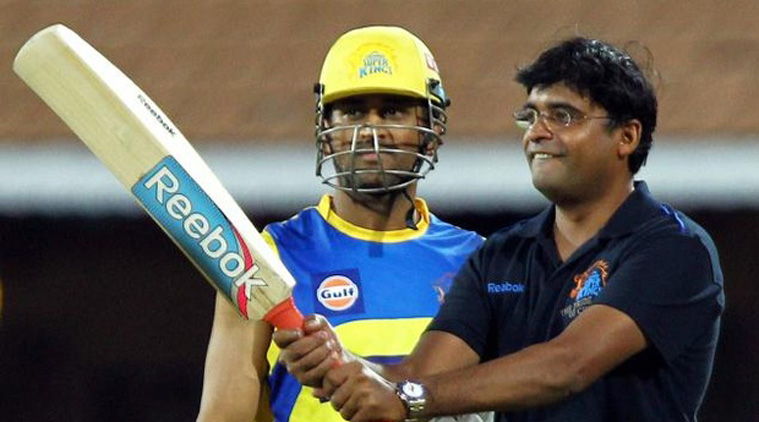This is the first time the ethics officer has found a state association president to be in a position of conflict.
The Board of Control for Cricket in India’s (BCCI) ethics officer Justice (Retd) DK Jain has adjudged Tamil Nadu Cricket Association president Rupa Gurunath to be in conflict of interest. This is the first time the ethics officer has found a state association president to be in a position of conflict.
Rupa, who is the daughter of former BCCI president N Srinivasan, became the TNCA president in 2019. Following a plea by Sanjeev Gupta in November last year, Justice Jain held that Rupa was perceived to be in conflict for holding two posts – TNCA president and one of the directors of India Cements Limited (ICL), which in turn runs Chennai Super Kings Cricket Limited (CSKCL), the owner of the Indian Premier League (IPL) franchise Chennai Super Kings (CSK). CSKCL is one of the subsidiary companies of India Cements.
The BCCI’s ethics officer, however, hasn’t directed Rupa to step down from one of the posts with immediate effect, sending the matter to the cricket board instead to decide the future course action as per Rule 38(2) of the BCCI constitution.
“… in view of the connections between ICL and CSKCL, undoubtedly, the Respondent (Rupa Gurunath) has at least indirect (if not direct) interest in CSKCL which has entered into an agreement/contract with the BCCI, thus attracting one of the forms of conflict of interest,” stated the order.
It added: “For all the aforesaid reasons, the Ethics Officer is of the view that a case of conflict of interest is made out against the Respondent. Having arrived at the aforesaid conclusion, the BCCI shall take requisite steps, in accordance with law, to ensure due compliance of Rule 38(2)…”
Rule 38(2) talks about disclosure when an individual holds two separate posts under the BCCI and failure to issue a complete disclosure could render the individual open to disciplinary action. According to senior advocate Raghu Raman, who represented Rupa before the ethics officer, as because it is perceived to be a case of indirect conflict of interest, the BCCI will judge if the conflict is tractable or intractable.
“As per the learned judge’s order, there’s a potential conflict, even though there’s no direct evidence that anybody has benefited from it. The rules strictly say that even a potential conflict becomes a conflict. So this will come under the category of indirect conflict. The learned judge had the power to order many things. He could have simply said, remove her, she has to step down… But he (ethics officer) has consciously refrained from giving any such directions and simply said the BCCI should strictly comply with the procedure as laid down in Rule 38(2),” Raman told The Indian Express.
He elaborated: “Now, Rule 38(2) says, disclose. So there will be complete disclosure, which will be put up on the BCCI website.
Thereafter, the Board has to decide under 38(3), whether this conflict is tractable or intractable. If it is a tractable conflict, they can excuse it either by saying you put in place certain circumstances which removes the perception that there’s a conflict. For example, perhaps they may say, you don’t sponsor this CSK team anymore. Or they may direct her to sit out of any decisions related to the IPL.
“Now, they may say all this circumstances show it is an intractable conflict. In that case they may decide to do something about it. But these are all hypothetical situations. Today, the situation is that the learned judge has not chosen to punish her. And nowhere in the order is there anything pointing that she has benefited from this or that she has influenced the course of things in CSK, or that India Cements has gained out of this.”
Accordingly, the TNCA has decided to wait for the BCCI’s decision. “We have sent the order to our legal team and we will wait for the BCCI’s decision,” TNCA secretary RS Ramasaamy told this paper.
In her submission, Rupa denied “any close association with CSKCL or any of the directors of CSKCL”. The ethics officer, however, inferred that Rupa in her capacity as a director of the ICL “has close association with” with the “Trustees of IC Shareholders Trust and the Directors of CSKCL”.
Why conflict of interest is at the heart of cricket reforms
For several years now conflict of interest has been one of the most talked about issues in Indian cricket. Until 2008, clause 6.2.4 of the BCCI constitution dealt with conflict of interest and didn’t allow players, administrators, match officials and team officials to have commercial interest in cricket activities
With the launch of IPL, the constitution was amended and this clause was done away with to allow BCCI office bearer N Srinivasan to own Chennai Super Kings through India Cements Limited.
In the wake of the 2013 IPL spot-fixing and betting scandal, with then CSK official Gurunath Meiyappan being one of the accused, the Lodha Committee was formed to do a structural reform of the BCCI and the conflict of interest issue yet again came to the fore. The court once called the conflict of interest “the real villain of the piece”. As a new BCCI constitution was formed as per the Lodha Committee guidelines, Srinivasan, along with many other senior administrators, became ineligible to continue in cricket administration.
Source: Read Full Article



